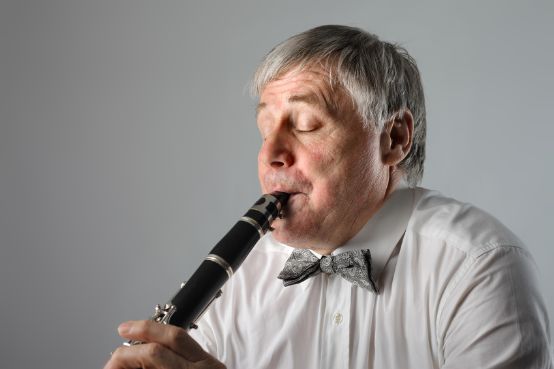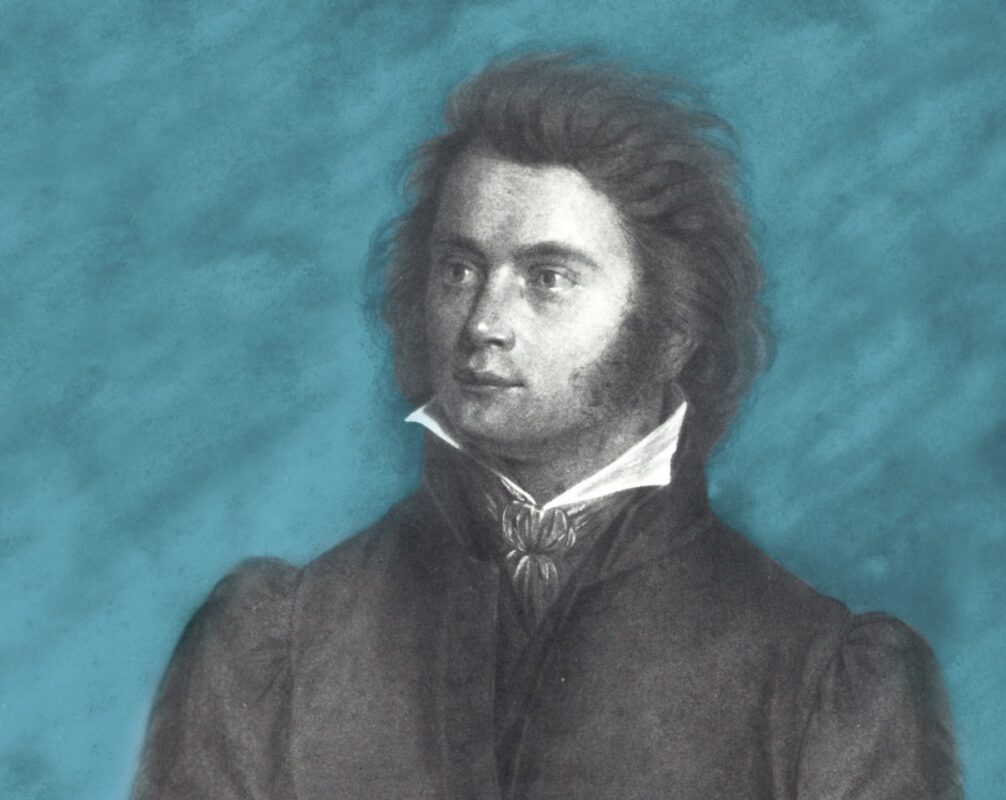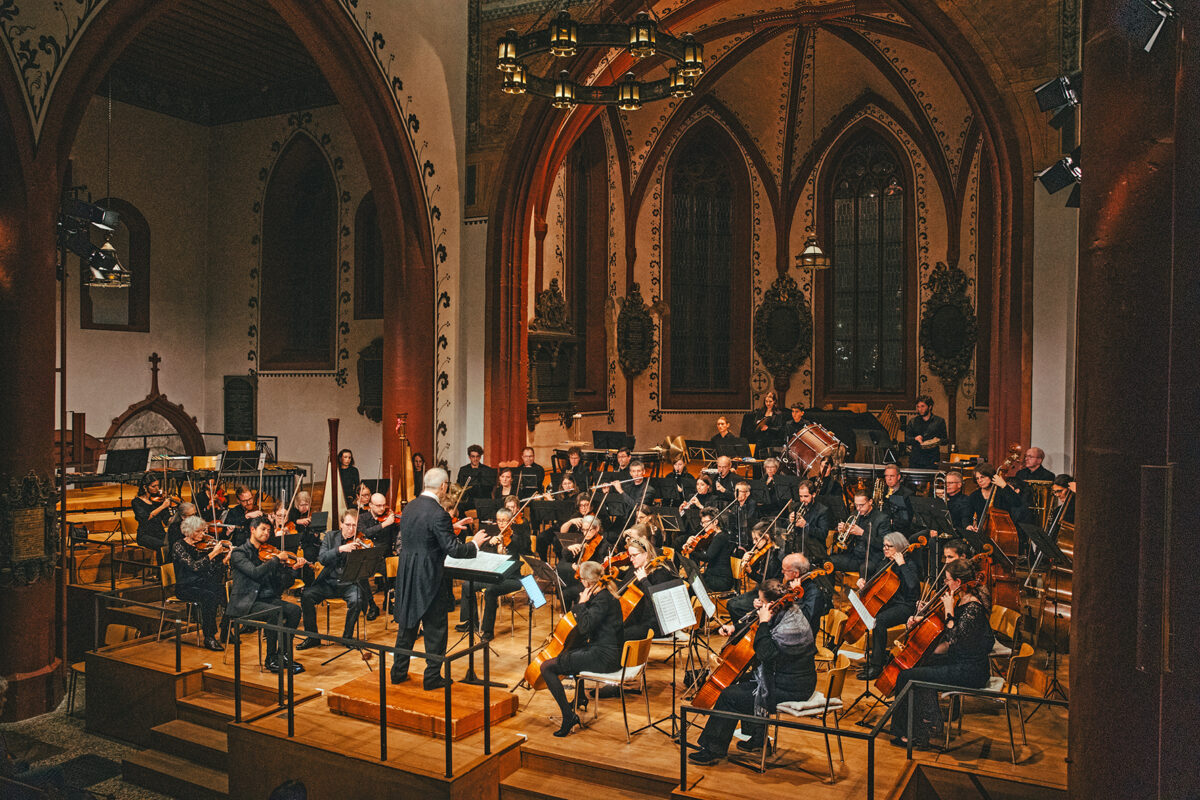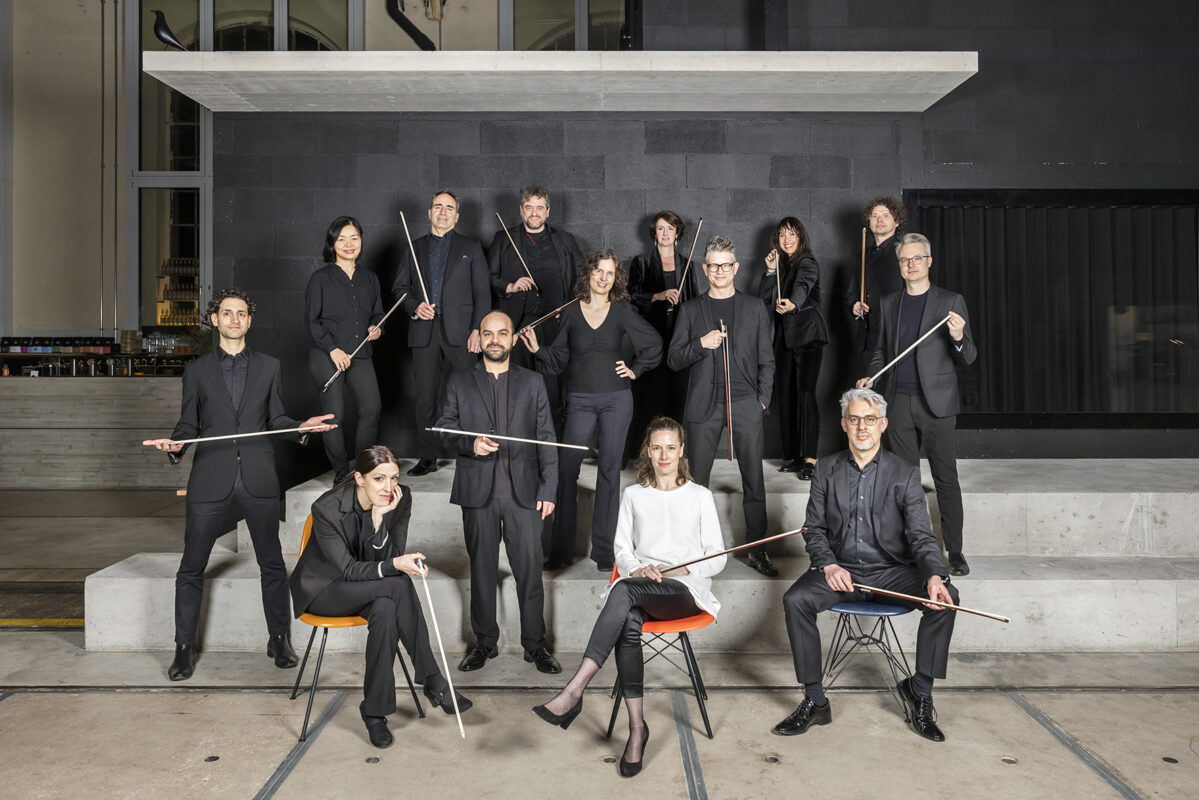Forum Music and Age
Musical learning in old age has its own laws, which have already been well described in research. At a scientific event at the Bern University of the Arts (HKB), the basic principles were outlined.

The forum "Perspectives on musical learning and teaching in old age" on March 29 in Bern was the kick-off event for the CAS "Musical Learning in Old Age" offered at the HKB, which will enter its second round in fall 2014. In terms of the density of the information provided, this crash course itself had a high continuing education value.
According to recent research, neuronal plasticity continues into old age. This can now be proven beyond doubt using brain scanners. The long-held prejudice that older people can no longer learn anything new has therefore been permanently invalidated. This is especially true when it comes to learning an instrument. Demand in the 50-plus teaching segment is increasing and demographic data suggests that this is likely to be a growth market - reason enough to take a closer look at it scientifically.
It's never too late
"Lifelong learning is possible", emphasized the two hosts Regula Stibi, Head of the Continuing Education Department at the HKB, and Corinne Holtz, Head of the CAS "Musical Learning in Old Age" course. They welcomed an interested and committed group of participants and four guests.
Eckhart Altenmüller, Professor of Music Physiology at the Hanover University of Music, Drama and Media, explained the effect of music on the brain and demonstrated this with images of scanned brains. When a person begins to make music, previously unconnected regions of the brain soon become rewired and the nerve cords expand.
Stimulation of the auditory center during musical activities has been shown to have positive effects on emotional and social competence, language acquisition and cognitive processes. This also applies to older and very old people. In addition, regular music-making is said to have a healing or preventative effect: Among other things, making music makes it possible to build up a "cognitive reserve", which can significantly postpone any dementia. Although the brain shrinks with age, it retains the ability to adapt through new networks, compensate for lost abilities and find new strategies. This is particularly important in complex professions such as teachers, therapists, musicians and doctors.
Unconventional old people - open lessons
Reinhild Spiekermann, Professor of General Instrumental Pedagogy, Piano Didactics/Methodology at the Detmold University of Music, is regarded as the first port of call for music geragogy, music pedagogy for older people. The speaker described the "biographical determinants" of older learners as central. The motivation to opt for music lessons varies greatly from person to person. Some have had bad experiences with learning processes, have experienced successes, failures, biographical breaks and setbacks and usually compare the new experiences with previous ones. This retrospective system influences learning patterns and self-assessment. Here, the teacher needs to build on the learner's life-historical experiences in a dialogical form. Enabling didactics is required and not educational didactics.
Physical limitations of vision, hearing and motor skills must of course be taken into account. Memory performance must also be taken into account. The elderly often learn in a roundabout way, can be stubborn and do not like to be taught. Few but clear instructions are better than too much at once. New material should be introduced carefully. Clear lesson sequences, ergonomic aids and suitable, possibly simplified literature are an advantage. The topic of "progress" must be approached in a differentiated way. Spiekermann recommends working on several pieces of a similar level of difficulty one after the other. "This often brings enough movement into learning. Progress is achieved by working on details rather than by increasing the level of difficulty".
Lack of scientific offerings
Hanspeter Schenk, principal of the Oberemmental music school, took his place on the podium at the final round. He reported an increasing interest in instrumental and singing lessons in the 50-plus segment at his school. Schenk also sees adult lessons as an opportunity for teachers with decreasing workloads. They can compensate for reduced workloads and use more mornings for lessons.
Corinne Holtz misses pedagogical and didactic concepts for the area of music and ageing in Switzerland. There is still no institutionalized scientific knowledge transfer on the subject in Switzerland. In addition to the CAS, other projects on the subject of music and old age are also underway at the HKB. As part of the "Musikpanorama" program (www.musikpanorama.ch), a workshop with Corinne Holtz entitled "Learning the double bass at 58" took place at the end of April. The university is also involved in a research project on "Learning and teaching strategies in 50plus instrumental lessons" in cooperation with the Bern University of Applied Sciences Business, Health and Social Work. Three groups, 50plus, very old people and teachers, are being interviewed on various points. This project will run until summer 2015 and will be followed by an online platform with guidelines on the topic. This would be the first tool of its kind in the world.








